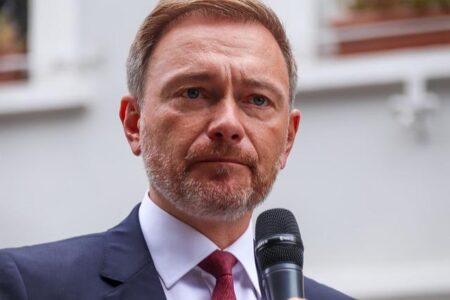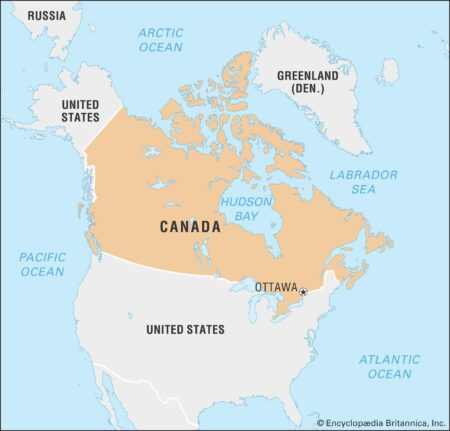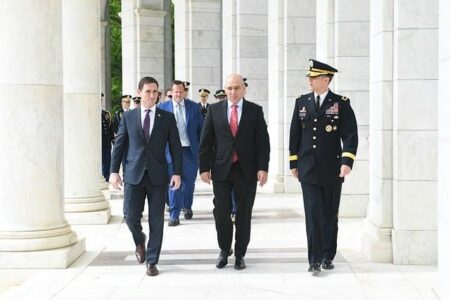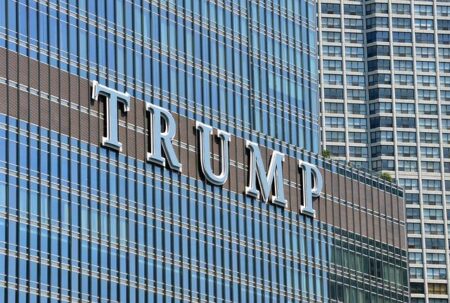India’s trade minister is set to visit the US for crucial discussions as looming tariffs from the Trump administration threaten to impact bilateral trade. Officials stress the importance of dialogue to mitigate potential economic fallout.
Browsing: US
The U.S. government has barred former Argentine President Mauricio Macri from entering the country, citing concerns over corruption and human rights violations during his administration. This move signals heightened scrutiny on international political figures implicated in such issues.
The U.S. is intensifying its efforts to curb Iran’s oil revenue by targeting China’s “teapot” refiners, which play a pivotal role in processing Iranian crude. This move aims to disrupt the flow of funds to Tehran amid ongoing sanctions.
India has urged the United States to take decisive action against the Sikhs for Justice (SFJ), a Khalistani outfit allegedly involved in anti-India activities. This call reflects growing concerns over transnational terrorism and the impact on bilateral relations.
As the space race heats up, the U.S. faces the risk of falling behind China in advanced propulsion technologies, particularly with China’s development of plasma engines. This innovation could reshape interplanetary exploration and maintain China’s competitive edge in Mars missions.
Canada is reevaluating a multi-billion dollar defense deal with the United States amid rising security concerns and changing geopolitical dynamics. Officials aim to assess the implications for national defense and relations with key allies.
The U.S. has paused negotiations with Canada regarding water-sharing agreements for the Columbia River, citing unresolved issues. This decision raises concerns over regional water management and ecological impacts as both countries face climate challenges.
Indian authorities have arrested a Russia-based cryptocurrency administrator in Kerala, wanted by the US for alleged involvement in cybercrime. This operation highlights international collaboration in combating digital financial fraud amid rising global scrutiny on cryptocurrencies.
Canada has launched a dispute complaint against the United States at the World Trade Organization over tariffs on steel and aluminum. The move underscores ongoing tensions between the two nations regarding trade policies and their economic impacts.
Australia has decided against implementing reciprocal tariffs on the US following President Trump’s announcement of steel tariffs. This response highlights Australia’s commitment to maintaining trade relations, despite the potential economic impact.
Alberta’s Premier emphasized that while Canada could increase oil supplies to the U.S., the country also requires new markets to diversify its economy. This dual focus aims to strengthen energy independence and address fluctuating global demand.
In a recent statement, the U.S. criticized Japan’s staggering 700% tariff on rice imports, suggesting potential repercussions. This move highlights ongoing trade tensions between the two nations and raises questions about agricultural policy negotiations.
In a recent op-ed for The Guardian, Peter Briggs argues that it’s time to abandon the flawed Aukus submarine program. He advocates for a comprehensive plan B, emphasizing the need for strategic reassessment and swift action to ensure national security and defense readiness.
The U.S. plans to hold a hearing to examine China’s initiatives aimed at enhancing its semiconductor industry. This move highlights ongoing concerns over technological competition and national security as both nations seek dominance in critical tech sectors.
France is mobilizing for a ‘wartime economy’ in response to the growing tensions in Ukraine, as U.S. support appears to wane. Paris aims to bolster military production and resources, underscoring its commitment to European security amidst shifting global dynamics.
The UK government reaffirms its stance on the United States as a “reliable ally,” amid concerns surrounding the operational status of Trident nuclear submarines. Officials stress the importance of transatlantic relations for national security.
Javier Milei’s recent visit to Washington underscores his commitment to promoting freer trade between the U.S. and Argentina. Such a shift could enhance economic ties, boost exports, and foster investment, potentially benefiting both nations’ economies.
In a recent statement, Canadian Prime Minister Justin Trudeau criticized former President Trump’s tariffs as “dumb,” suggesting they are part of a broader strategy aimed at facilitating a potential U.S. annexation of Canada. Trudeau’s remarks underscore heightened tensions between the neighboring nations.
In a significant shift for the tech industry, UK entrepreneurs are increasingly relocating to the US to harness its vibrant startup ecosystem. This movement not only fosters innovation but also reshapes market dynamics, potentially leading to groundbreaking advancements.
Recent reports indicate that Russia views ongoing discussions with the U.S. as a strategic opportunity to restore its intelligence networks. Officials highlight the potential for enhanced espionage activities amidst shifting diplomatic relations.



















